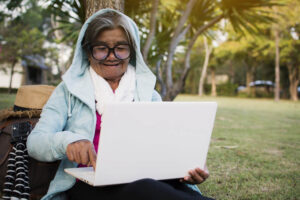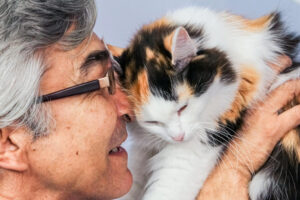How would you like to blow out 100 birthday candles? More than 84,000 people living in the U.S. today have reached that mark, and the number of centenarians (100-year-olds) is expected to increase to 580,000 by 2040.*
How would you like to blow out 100 birthday candles? More than 84,000 people living in the U.S. today have reached that mark, and the number of centenarians (100-year-olds) is expected to increase to 580,000 by 2040.*
You may assume that your parents’ or grandparents’ longevity determines your own likelihood for reaching an advanced age, but genes are just a small piece of the puzzle. Many scientists estimate that longevity is based 20% on genetics, with 80% determined by your lifestyle choices and environment.
A Day in the Life
A poll of 100 people who turned 100 in 2010 provides a snapshot of the healthy habits that keep them going strong:**
- More than 80% communicate with a friend or family member daily.
- Three out of four eat nutritionally balanced meals every day.
- 75% get eight hours or more of sleep.
- 72% laugh or giggle every day.
- 62% pray, meditate or engage in spiritual activity daily.
- Four in 10 stay active by walking or hiking at least once a week; 31% stay active by gardening.
- 32% of the centenarians eat organic foods regularly.
- 17% are currently doing some type of volunteer work.
An increasing proportion of centenarians are also staying sharp by using new technologies: 12% have listened to music on an iPod or similar device, 11% have watched a video on YouTube and 8% have sent a text or instant message.
Community Is Key
Centenarians often live in close-knit communities where stress levels are low and the connection to nature is high, with a clean environment and plenty of fresh air and good water. Researchers are learning that where you live – and how you live – are significant factors in longevity (read “Lessons from the Oldest People on the Planet”).
Some centenarians claim a single habit as the key to long life, such as doing crossword puzzles, drinking a glass of wine a day or singing in the shower. But it’s far more likely that the right combination of healthy habits, social connections, brain-boosting activities, good genes – and a little luck – are the secrets to living 100 years or more.
* Source: U.S. Census Bureau.
** Source: Evercare by United Healthcare May 2010 100@100 Survey, www.Evercare100at100.com.
Lessons from the Oldest People on the Planet
The lifespan of people who belong to communities in longevity hot-spots (also called Blue Zones) worldwide is astounding. Researchers are studying various groups of people to uncover the secrets of long life, including why disease rates are so much lower in Blue Zones than the rest of the world. Dan Buettner, an American explorer, researcher and author, has identified the following as Blue Zones: Nicoya Peninsula, Costa Rica; Sardinia, Italy; Icaria, Greece; the islands of Okinawa, Japan; Loma Linda, California (specifically, the Seventh Day Adventists). Check out www.bluezones.com to learn more.*
Common healthy traits of centenarians in these areas:
- Family is the highest priority in life.
- Nutrition comes from plant-based diets (especially legumes).
- People are constantly in motion and physically active.
- People are socially engaged with their community.
- They don’t smoke.
* Website provided for information only. No endorsement is implied.




















